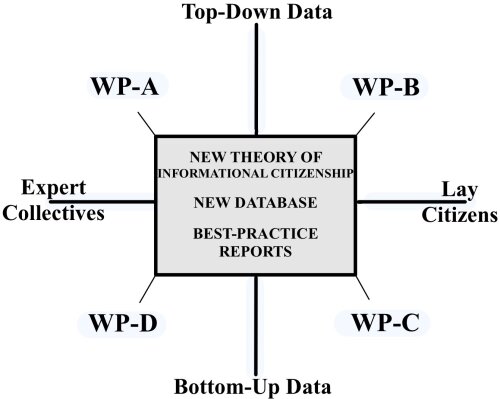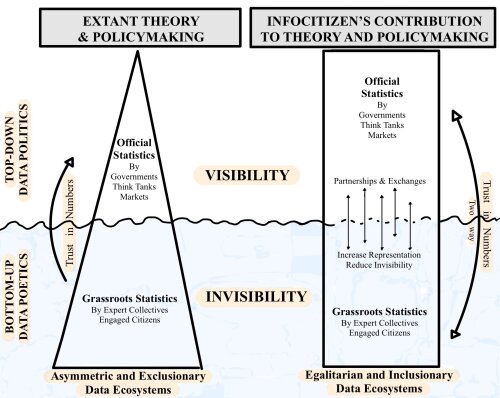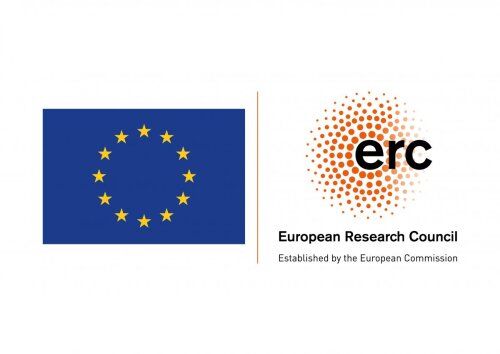Overview
Data has been extolled as the new frontier of development. Across the Global South, grassroots initiatives have championed big data to promote citizen rights, improve state accountability, and reduce inequality.
But what do we know about the everyday realities of those making and circulating their own numbers?
InfoCitizen posits that more granular and interlinked accounts of how, why, and when people engage with numbers are needed to grasp their impacts on identity, subjectivity, and public policy.
We will:
- Study the citizenship practices and technologies coalescing around model initiatives to produce and circulate data in the Global South. For favela residents in Brazil, ethnic minorities in Portugal and Germany, and poor citizens in Tanzania and Kenya, far from splintering and prying, data has the potential to promote cultural change, political identity, and economic well-being via “better,” “faster,” and “more reliable” public and private statistics.
- Explore top-down and bottom-up data ecosystems involving both citizens and experts. Only by capturing interactions across these scales can we grasp how experts and citizens remake their identities through the lens of data.
- Combine archival, digital, audiovisual, and quanti-qualitative methods to unpack the tools—censuses, smartphones, policy reports—and actors—NGOs, data labs, legal commissions—crystallizing in the wake of grassroots numbers.
- Generate applied and analytical outputs and a unique interactive platform to visualize the effects of datafication on citizenship practice—and critically probe the imaginaries, contingencies, materialities, and spaces of data for radical democratic change today.

Questions & goals
InfoCitizen will build an interdisciplinary theory of informational citizenship by integrating insights from the social studies of quantification, the anthropology of data, and citizenship studies to assess:
- Top-down and bottom-up tools, knowledge regimes, experiences, and practices of datafication by experts and citizens
- Their symbiosis and tensions
- Their effects on individuals, communities, and institutions (including law- and policy-making)
By generating answers to these interrelated questions, we aim to:
- Unravel the technopolitical infrastructures of quantification in top-down data ecosystems
- Explore the grassroots epistemologies and quantification tools in bottom-up data ecosystems
- Chart the distinctive datafied subjectivities of engaged citizens involved in bottom-up data
- Map the transnational networks of action/expertise rising from top-down and bottom-up data
Work packages
InfoCitizen is multi-disciplinary and multi-method by design.
We will gain new insights into the politics of datafication (infrastructures, epistemologies, and visibilities) by tracking online and offline official records, media databases, think-tank reports, and grassroots materials.
We will unpack the poetics of datafication (experiences, socialities, and affects) through in-depth interviews, observation of data collection and circulation, data routines and events, and by living among—and interacting with—the communities where numbers are produced and mobilized.
InfoCitizen will use digital humanities to analyze, archive, and stylize outputs for dissemination through interactive visualization tools that aim to approximate experts and citizens and reimagine public trust in science.
Our team will gather anthropologists, sociologists, historians, geographers, and development scholars to examine the effects of top-down and bottom-up datafication in four different settings.
A- In top-down, expert-centered data: by tracking the controversies and transnational politics of top-down data in Brazil’s population census. This work package explores the controversies around the design and implementation of Brazil’s 2020 population census. Brazil’s case is unique because a conflation of pandemic effects, fiscal cuts, and far-right populism has pushed the data collection to 2022 and prompted experts to publicly defend the production of numbers.
B- In top-down, citizen-centered data: by documenting ethnocultural enumeration practices from the Portuguese Empire to 21st-century data debates. This work package expands the Brazilian case transnationally and thematically by studying the statistical assembly of ethnocultural data debates in Portugal, where a legal commission has recently questioned the historical absence of data on ethnic minorities in the country’s population census.
C- In bottom-up, citizen-centered data: by mapping alternative enumeration practices among Black minorities in Rio de Janeiro and Berlin. This work package will comparatively study Rio de Janeiro’s Censo da Maré, an initiative to produce alternative census data on favela residents; a Berlin-based initiative to create alternative census data to track experiences of discrimination and underrepresentation of African-descendants; and Rio’s Map of Armed Groups, an initiative led by engaged favela scholars to garner data to monitor police brutality and intervene in decision-making processes.
D- In bottom-up, expert-centered data: by interrogating data for development, participation, and accountability in Brazil, Tanzania, and Kenya. This work package will comparatively gauge two model initiatives that have pioneered tools for citizen input in data collection to yield “faster” and “better” public-private statistics. In Tanzania and Kenya, an NGO partnered with the WB to use phones for data collection, fight data deprivation, and improve National Statistical Systems. In Brazil, an NGO funded through venture capital yields citizen data to generate state accountability and algorithm transparency.

Collaborations and applied networks
Beyond conventional dissemination and communication strategies such as publications and academic conferences, InfoCitizen will launch an applied research network gathering top-down and grassroots experts and practitioners across the global South. Our partnerships already include the Group for the Study of New Illegalisms at the Fluminense Federal University, the NGO Redes da Maré in Rio de Janeiro, and many other notable academic and applied institutions across the globe. Together, we expect to generate policy-oriented reports, networking events, a podcast, and a documentary that will appeal to scholars of data, policymakers, development actors, think tanks, and engaged experts and citizens involved in top-down and bottom-up data ecosystems.

Funding
This project was selected and approved for funding by the European Research Council (ERC) under the Horizon Europe Framework Programme (HORIZON), 2022 Starting Grant call (agreement nº. 101076030).
